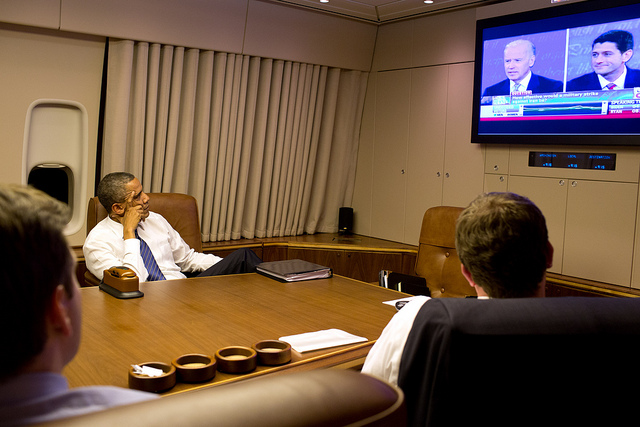Guest post by Neil Mitchell

The Senate Select Committee on Intelligence tells us that America’s ineffective torture policy was the responsibility of a runaway bureaucracy relying on two inept but very expensive psychologists (their contract was worth $81 million). The report has been praised as an example for other democracies, notably Britain. While it comes clean about those who carried out the policy and the techniques they used, it is an account that shifts the blame from elected politicians, whether in Congress or the White House, to an agency. Looking backward, the Committee does not dwell on its share of the blame and the poor vision of those in oversight roles at the time.
A principal finding is that the CIA actively impeded oversight. It says that the committee was not fully briefed about the application of techniques and some information was restricted to the committee chairmen or vice chairmen. The White House also only had incomplete and inaccurate information. What the report fails to address in the forensic detail it applies to the techniques is just how the White House and Congress allowed the agency to impede oversight for so long?
Elected politicians may have been unfamiliar with “rectal rehydration or rectal feeding without documented medical necessity.” But Congress knew, early on, that the gloves were off. Members could read about it in the Washington Post. The mistreatment of detainees in Afghanistan, deaths in custody, and the use of rendition was on the front page in December 2002. In 2004, Washington Post journalist Dana Priest said that when officials started talking about the harsh techniques “there was nobody I could find in Congress who was talking both to members of Congress and to their staffs and the people who brief them who said, ‘well, wait a minute. Maybe you should not do that.’” Administration officials wanted the ‘go-ahead’ and “they not only got a free hand, but many members of Congress who were on those oversight committees said yes, and make sure that you are pressing as hard as you can. And the gloves are off.” This account suggests that the oversight failure was, at least in part, self-inflicted. It was not a case of can’t control, but won’t control.
Things might have been different with different leaders in the White House and in Congress. But even strong leaders are likely to derive their sense of rectitude from an electoral audience demanding their best, to paraphrase Middlemarch. President Bush and Senate Committee did not have that. Bush was not punished at the polls when the worldwide scandal of Abu Ghraib broke in 2004. Indeed, according to Karl Rove’s autobiography, it was Senator Kerry who was vulnerable because of his description of American war crimes in Vietnam. David Bromwich said Rove’s “point is that you cannot speak of a war crime by Americans and get elected in America.” Would this hugely costly inquest into what went wrong have been avoided if those in oversight roles at the time had had the will to push harder? Encouragement from the electoral audience would have made that easier.
There is no doubt that oversight of intelligence agencies is vital in a democracy, as Michael Colaresi makes clear in Democracy Declassified. With the oversight failure, Congress knew enough but didn’t do enough. It is doubtful that the electorate would have rewarded them for exposing those gathering intelligence in support of the troops and national security. However well designed, if oversight institutions are going to work then the electorate has to care. And if we care to attribute responsibility for wrongdoing, then we need to be aware of the blame-shifting forces at work.
The gravitational theory of accountability holds that when things go wrong, blame falls to the lowest plausible level, to the fall guys. With the scandal at Abu Ghraib, the Bush administration wanted to put distance between their interrogation policy and the actions depicted in the photographs. Eleven sergeants, specialists and privates on the night shift at the prison were punished. With the oversight failure, Congress has shifted the blame to the agency, and perhaps heightened the anxiety of two ‘runaway’ psychologists.
*Neil Mitchell is a professor of International Relations, and the acting head of the department, at University College London.







2 comments
I would suggest that fairness not necessarily be conflated with desired results.
Yes, shit rolls down hill. And the people who set the policy in place or whose duty it was to monitor the behavior of the people conducting the torture in will likely never suffer the same consequences as the people who actually did what they were told.
The message has been sent, that the behavior is unacceptable, and people who are concerned for their careers and advancement will now probably not do these reprehensible acts out of fear that they could be held accountable. Which results in torture not being done as a matter of policy anymore. Which is a desirable result, irregardless of whether past perpetrators are ever held accountable.
Yet people in the CIA were well aware that it was unacceptable at the time and believed it would have repercussions, despite the official position of the Justice Department, and they complained about it internally. See, for instance, this excerpt from a CIA Inspector General’s report (pp. 101-102) written in 2004 and declassified (in redacted form) in 2009:
255. (TS/{code deleted}) A number of Agency officers of various grade levels who are involved with detention and interrogation activities are concerned that they may at some future date be vulnerable to legal action in the United States or abroad and that the U.S. Government will not stand behind them. Although the current detention and interrogation Program has been subject to DoJ legal review and Administration political approval, it diverges sharply from previous Agency policy and practice, rules that govern interrogations by U.S. military and law enforcement officers, statements of U.S. policy by the Department of State, and public statements by very senior U.S. officials, including the President, as well as the policies expressed by Members of Congress, other Western governments, international organizations, and human rights groups. In addition, some Agency officers are aware of interrogation activities that were outside or beyond the scope of the written DoJ opinion. Officers are concerned that future public revelation of the CTC Program is inevitable and will seriously damage Agency officers’ personal reputations, as well as the reputation and effectiveness of the Agency itself.